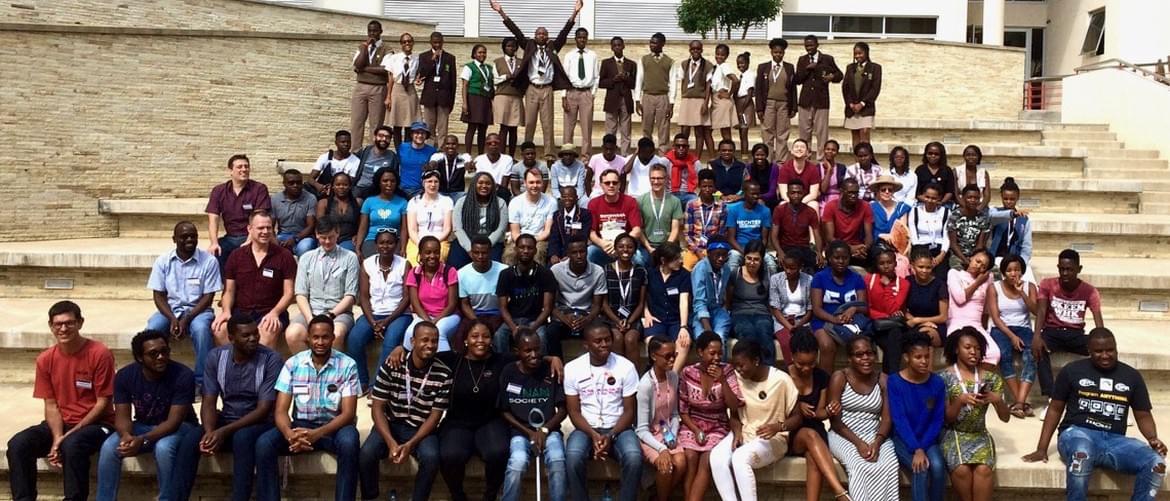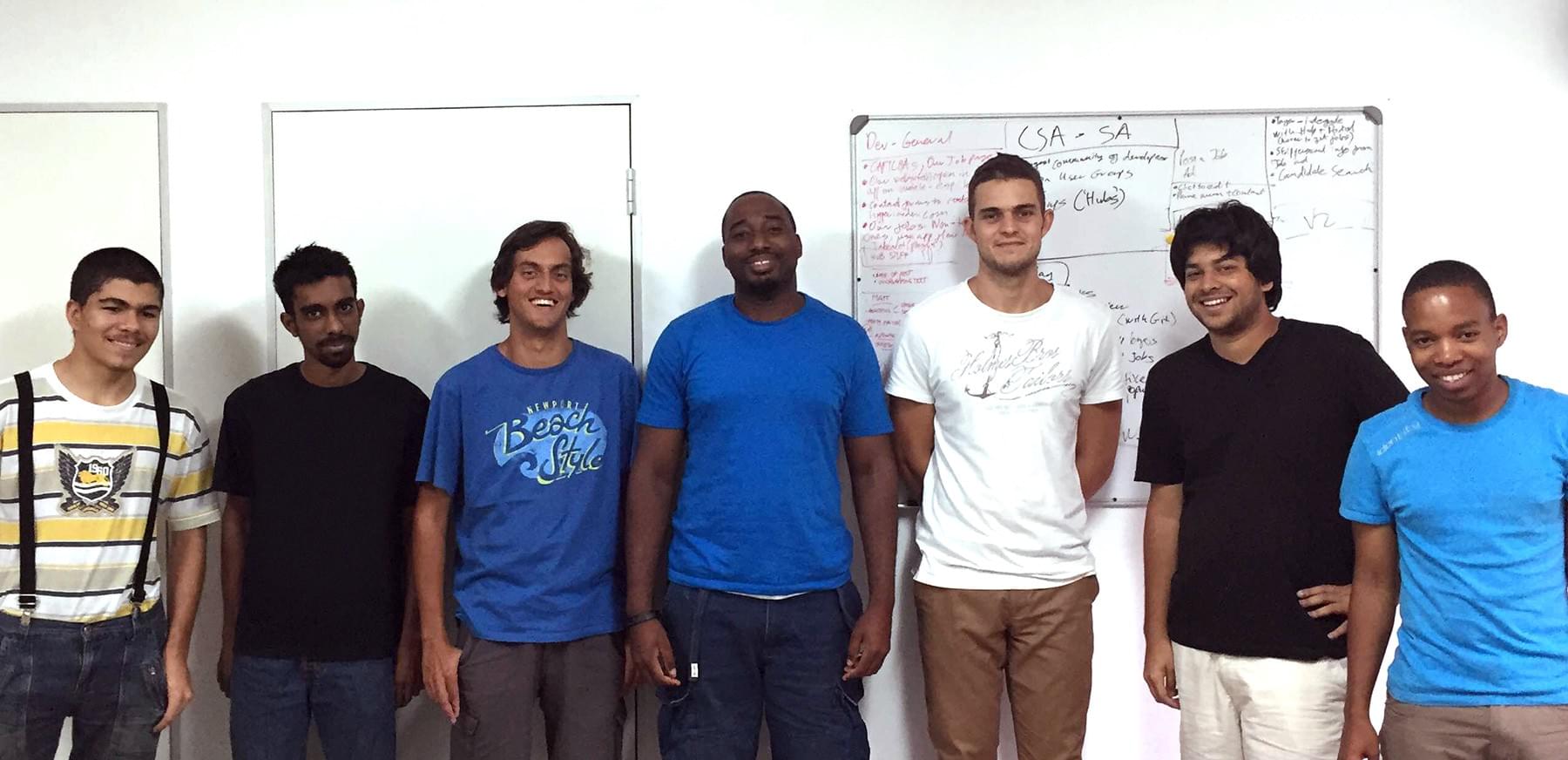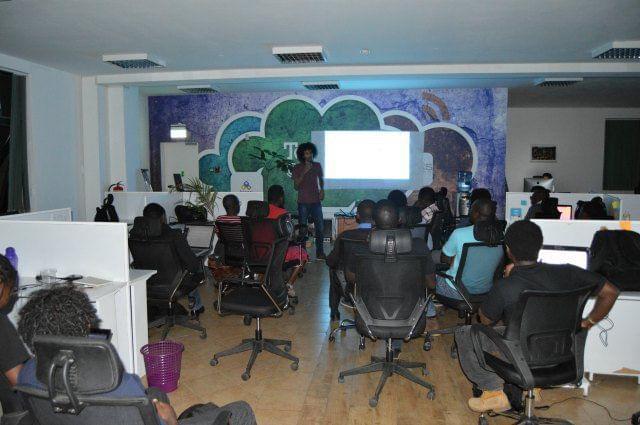Greetings from Australia,
I am not an authoritative source on Africa. I am neither an African resident or national. I spend about 1–2 months of the year in South Africa for work but isolated into the office or my hotel.
Over the last 12 months, I’ve been enraptured with the creativity and passion of the Python community across the African continent and want to use this letter to explore and share some of the amazing things that are happening.
I believe the broader international Python and Software community can learn a lot from what so many amazing people are doing across Africa.
This is not a story of overcoming adversity as is often painted in the media, this is a story of opportunity and passion. In my experience, Africa is a colorful mosaic of cultures and history, the more you learn and explore, the more you get drawn in to go further.
Speaking to non-Software people about Python in Africa, you might get some funny looks. The “African rock python” is the largest known species of snake native to Africa, with an average adult length of 20 feet and lengths recorded up to 30 feet. If you are here for photos and stories of snakes, I’m sorry to disappoint but there aren’t any.
Stories from Southern Africa¶
“Southern Africa”, generally includes the nations of Angola, Botswana, Eswatini (Swaziland), Lesotho, Malawi, Mozambique, Namibia, South Africa, Zambia, and Zimbabwe. The UN’s definition would exclude Mozambique, Zambia, and Zimbabwe.
Some of these countries are very small, Lesotho is a small, mountainous, land-locked country in the middle of South Africa. South Africa is a huge country with almost 60 million people and a GDP higher than Denmark. To say this is a diverse group of countries would be a gross understatement.
There are some large metropolitan cities in Southern Africa, mainly Cape Town, Luanda, Johannesburg, and Durban.
Namibia¶
Namibia hosts the PyCon Namibia conference in the capital city Windhoek. 2018 was the biggest PyConNA yet.

The attendance of PyCon NA was 50% male and 50% female. Yea, I was blown over by that statistic too. I have never, in my life, attended a tech conference with better than 75/25 split in the attendance.
So like I said earlier, the rest of the international community should be taking notes…
They had 82 attendees from 12 different countries, mostly across the African continent but also some international travelers.
Throughout this article, I’m going to call out people in the Python Africa community who are impacting serious change. One such person is Jessica Upani, Chair of PyCon NA. You can see some of the work that Jessica is doing to inspire school children in this video,
Python in Namibia is driven by people like Ngazetungue Muheue, Honors student from the University of Namibia. Ngatatue Mate, the VP of Python Namibia society talks about how he got into Python and applies it to his life:
The hard work of the Namibia community is delivering within both the youth and adult professional groups, like this story from a year 12 student building a Python app and being featured in the national news:
YouthPaper | Herman Mutalya (17), a Grade 12 pupil at Windhoek Technical High School, is in the final stages of developing a mobile application called Study-Pal, which he says will make studying easier for Grade 12 pupils in Namibia. https://t.co/6Bhv9ZjmaN pic.twitter.com/oj85mX2Hcp
— The Namibian (@TheNamibian) June 5, 2018
Botswana¶
Botswana is using Python to tackle global issues. The Botswana-Harvard HIV/AIDs partnership is using Python and Django to power it’s clinical trials unit.
Zimbabwe¶
Zimbabwe is home to the world-famous Victoria Falls as well as large reserves of endangered animals.
The Python community in Zimbabwe is booming, thanks to a group of impassioned Pythonista’s like the PSF Director Marlene Mhangami and Anna Makarudze.
Marlene founded ZimboPy, an education programme for local women wanting to get into Python. The courses are free, local and teacher-led. One of the students has gone on to study at Harvard, others to pursue professional development careers.
ZimboPy August 2018 Mentorship Week https://t.co/1X3iuIdK6x pic.twitter.com/kKxLQ3RVQ5
— Vuyisile Ndlovu (@TerraMeijar) August 21, 2018
2 things I was not expecting to find in Harare were a world-leading Cybersecurity programme using Python and one of the worlds largest supercomputers running Jupyter.
During an unfortunately-brief visit last year I got a tour of Harare and it’s new HPC facility. This is the existing suite, the new one is going to be one of the largest in the world. Local students and researchers are invited to the facility to run tests, hypothesis, and algorithms with Jupyter Notebooks fully integrated into their PC lab. This is cutting-edge technology.
Visited the High Performance Computing Center this morning. They’re building one of the biggest super computers in the world in #Zimbabwe. discussing #ai use cases. Free computation for local research students and startups, all using Jupyter notebooks and #Python! pic.twitter.com/br8XgyqZAO
— Anthony Shaw 🐍 (@anthonypjshaw) July 27, 2018
Cybersecurity and the adoption of Python in Zimbabwe are being driven by people like Tendai Marengereke, a professor at HIT. Do you know of any Cybersecurity degrees being taught using Python at your local university? I don’t, they’re still teaching Pascal and Java.
South Africa¶
South Africa’s capital city Johannesburg is one of the business-capitals in Africa, host to big tech names like Microsoft, Oracle, Amazon and Dimension Data (who I work for).
The software engineering job market in South Africa is growing, rapidly. So much so that Google and the PSF funded a startup to help people find dev jobs quickly. Powered of course by Python.

One of the things we’re doing at Dimension Data is introducing Python as a business-automation tool. Python is used to automate HR systems, Finance Systems, Technology Operations and Reporting. That means we need a lot of people to know Python! So far, we’re up to 4000 employees learning basic to intermediate Python.
Going to Eastern Africa…¶
“Eastern Africa” has many countries, like Tanzania, Kenya, Uganda, Rwanda, Burundi and South Sudan.
Uganda¶
Uganda hosts over 1,000,000 refugees and Python is being used as a way to reeducate people in dire need of opportunity. This presentation by Linus Wamanya, Kato Joshua, and Buwembo Murshid speak to some of the ways Python is being used in Eastern Africa. It’s hard not to be moved by this talk,
Kenya¶
On the East Coast of Africa with a coastline on the Indian Ocean, is known for Safari tours. Kenya’s 2 major cities, Nairobi and Mombasa are host to communities of Python developers.
Kenya’s capital, Nairobi has a regular Python meetup with over 1300 members where people can learn about complex Python technologies like Concurrency and Gevent.

Kenya’s PyCon “PyCon-KE” was sponsored by International tech companies like Microsoft and Google, as well as innovative African FinTech Jumo.
@PeterOkwara conducting a workshop on getting info of an EOS #Blockchain node using Python #PyConKE2018 @StrathU @PyNBO pic.twitter.com/JDgbKIxCkP
— EOS Nairobi (@EosNairobi) October 26, 2018
The tracks at PyCon-KE 2018 focused on IoT, AI, Data Science and Web Development. It’s easy to see how with African tech startup and local innovators, these companies can thrive. Data Science featured heavily at the PyCon in Nairobi, even getting the local youth involved with “Data Science for Kids” talk by a local high school student.
2017’s PyCon KE hosted programmes for the local youth too, like this music-oriented concept using Sonic Pi.
I could share 100’s of stories from Kenya, but we have another 40+ countries to explore…
Tanzania¶
Tanzania’s capital, Dar es Salaam is hiring Python developers to be part of Africa-wide data journalism and civic technologies fund, “Code for Africa”.
CfA’s projects include “Drone Journalism” initiatives to give citizens ‘actionable information’ on issues such as air and water pollution.
Rwanda¶
Host to a thriving developer community, Rwanda is a small country with 12 million. That doesn’t stop them from innovating in the fields of data science and AI. Local DjangoGirls team, “Django Girls Kigali” host workshops in the countries capital to teach them about software development, Internet tech and web development.
Here is what you missed!#DjangoGirlsKGL pic.twitter.com/1f8Ch9Qauq
— Django Girls Kigali (@DjangoGirlsKgl) September 17, 2018
There are also social startups in Kigali, like Nyaruka, who use Django and other open-source technology to build software for local companies and NGO’s. Artificial Intelligence again is being researched and taught in Rwanda, with a local group “AI Saturdays”, a social club for AI developers and researchers.
Central and West Africa¶
Central Africa has huge swathes of lush rainforest, the rainforest in the Congo is the 2nd largest in the world after the Amazon. Population density is low in the center due to the environment, so if you go further West and work up and around the coast, you’ll find Pythonista’s-a-plenty.
Nigeria¶
The most populous country in Africa, with over 15% of the people in the continent living there. Lagos has a large and rapidly growing Python community.
Aisha Bello, another inspiring person in the African Python scene co-organizes PyCon-NG, PyLadies and Django Girls.
PyCon-NG, the PyCon hosted in Lagos was host to some of the best tech talent in Africa. It was also one of the most diverse PyCon’s in the world.
For a quick glimpse of what you missed (apparently, some really hot chili sauce) check out this video. All of the PyCon NG talks are available on YouTube.
Another large city in Nigeria is Abuja, the nation’s capital, and host to some growing Python communities. One of those communities is Django Girls Abuja.
7 more days to the close of registrations for Django Girls Abuja Workshop. Let all the Women in your life be aware of this golden opportunity to begin a career in programming and apps development. Absolutely free! To register, Visit: https://t.co/xddOryUzTr Please Retweet. Thanks pic.twitter.com/LpfljiPB5A
— Django Girls Abuja (@djangogirlsabj) October 3, 2018
DG Abuja is run by a team of volunteer coaches, like Akoh James and Adeshola Funmilayo. It could be easy to sit back and look at all this success and think it “just happens”, but it can’t without the dedication and hard work of all these inspiring people.
Togo¶
To the west of Benin, Togo is new on the Python scene and is joining forces with Python Ghana and Python CI. The 3 countries are bordering and sit on the south western coast of Africa. There’s an upcoming GDG event in the Lomé with AI on the agenda (I think, it’s written in Français).
Ghana¶
Next door Ghana is host to the first PyCon Africa in 2019. After reading all these stories, I’d decided I cannot miss out so I’ve marked it in my calendar and I’ll see everyone in Accra.
PyCon Ghana 2018 was the first PyCon in Ghana, but it looked like a huge success
The DSF warmly congratulates PyCon Ghana, its organisers and all the Ghanaian Python community on a very successful first edition of the conference.@PyConGhana #PyConGhana pic.twitter.com/ERsShcfPO9
— Django (@djangoproject) August 11, 2018
PyLadies Ghana is up and running thanks to people like Mimi Darteh and Abigail Dogbe. There are workshops in Wa, to the North, Ho to the east and the major cities Accra and Kumasi.
We could actually jump for the whole world😄.This is to every #PyLady out there, for all your continuous effort and hard work in advancing, educating and promoting the use of #Python both at your various work places and to the Community as a whole.#PyLadies #PyLadiesGhana #WCW pic.twitter.com/C8DryDjmN5
— PyLadies Ghana (@PyLadiesGhana) January 16, 2019
The PyLadies in Ghana went on a recent field trip to Esoko, a company that uses technology and mobile applications to help farmers in remote communities.
Glad I was part of the @PyLadiesGhana #FieldTrip
— Aseda O. Addai-Deseh (@AsedaAD) January 11, 2019
to @Esoko. The team
received us warmly and we learnt about the products and services they offer and how it is to work with their company.They were also glad to answer all our questions. #AProIn60Mins #PyladiesGhana #PythonGhana pic.twitter.com/ASv0zld8zx
Cotê d’Ivoire¶
Next door to Ghana, the Ivory Coast has a Python community too, partnering with Ghana and Togo. There’s a Django Girls chapter set up in the capital Abidjan and you’ll see many of the community in PyCon Africa this year.
Northern Africa¶
Sadly a different story than the other regions, with major humanitarian crises in Libya, and Sudan.
Morocco¶
Host to a new Pydata meetup in Casablanca, which covers data science in Python talks from local researchers and developers
Making discovery by accident and sagacity @lammiia pic.twitter.com/oAcA0YAcJp
— PyData Casa/Rabat (@PyDataCasaRabat) July 5, 2018
Egypt¶
Egypt’s capital Cairo has a PyData chapter also with some interesting talks and research
Check out this Meetup: 2nd #PyDataCairo #Meetup: The Role of Thermal Imaging in Crowd Counting & Control. Main speaker: Dr. Nermin Negied. Join us at https://t.co/32KJB6Oemn #Meetup via @Meetup@PyData @NumFOCUS
— PyData Cairo (@PyDataCairo) June 28, 2018
Conclusion¶
The story of Python Africa continues to expand and evolve. This is a story of surprises, opportunity, and passion.
Without the numerous volunteers, advocates, teachers, and mentors (only a fraction of which were mentioned), none of this would be possible.
Also, a special mention to the Python Software Foundation and the Django Software Foundation, for their generous grants to sponsor some of these meetups and groups.
I can’t wait to see how this story unfolds, I will be there at PyCon Africa 2019, I hope to see you there too…
…and I hope you will be taking notes.
Yours Sincerely, Anthony Shaw
NB: If you want to call out or credit some other initiatives going on, you can submit a Pull-Request to this article.


